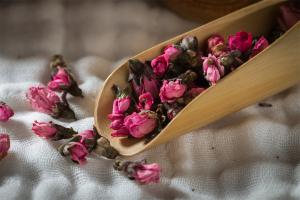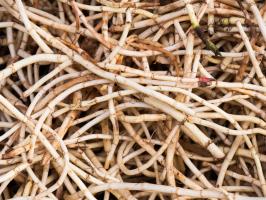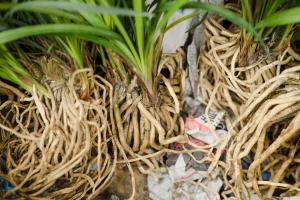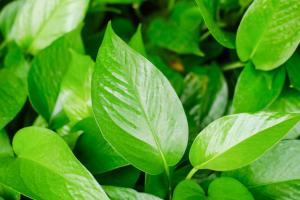Introduction
Black walnut trees are known for their beautiful wood and delicious nuts, but they can also be tricky for gardeners. The tree's roots, leaves, and nuts produce a chemical called juglone that can be toxic to many plants. However, there are some plants that can tolerate or even thrive in the presence of black walnut trees. In this article, we will explore what plants can live near black walnut trees.
Plants that can tolerate juglone
While many plants are sensitive to the chemical juglone, there are some plants that can tolerate it to some extent. These include:
1. Aspen Trees
Aspen trees are known to do well near black walnut trees. They are not only tolerant of juglone, but they can also help to reduce its impact on other plants.
2. Hemlock Trees
Hemlock trees are another type of tree that can tolerate juglone. They are also known to provide shade and reduce soil erosion, making them a great option for gardens near walnut trees.
3. Wild Geraniums
Wild geraniums are a beautiful addition to any garden, and they also happen to be tolerant of juglone. They have lovely pink or lavender blooms and can be used as ground cover or in borders.
Plants that are resistant to juglone
While there are only a few plants that are completely resistant to juglone, there are some that have been known to thrive in its presence. These include:
1. Black-eyed Susan
Black-eyed Susan is a hardy perennial that can grow well near black walnut trees. This yellow flowered plant is a member of the sunflower family and can reach heights of 3 feet.
2. Daylilies
Daylilies are another type of plant that can withstand juglone. They come in a variety of colors, including yellow, orange, and red, and can be used in borders or mass plantings.
3. Bee Balm
Bee balm, also known as monarda, is a member of the mint family and can thrive near black walnut trees. It has pink, red, or lavender blooms and is a great addition to any garden.
Plants that can be harmed by juglone
While there are many plants that can tolerate or resist juglone, there are some that are highly sensitive to it. These include:
1. Tomatoes
Tomatoes are one plant that should not be grown near black walnut trees. They are highly sensitive to juglone and can wilt and die when exposed to it.
2. Azaleas
Azaleas are another plant that should be avoided near black walnut trees. They are very sensitive to juglone and can easily become stressed and die.
3. Peppers
Peppers are also highly sensitive to juglone and should not be grown near black walnut trees. They are known to wilt and die when exposed to the chemical.
Conclusion
In conclusion, there are many plants that can thrive near black walnut trees, and some that should be avoided. By choosing plants that are tolerant or resistant to juglone, gardeners can create a beautiful and healthy garden that coexists with these majestic trees. As with any gardening project, it's important to do your research and choose plants that will thrive in your specific climate and soil conditions.

 how many times do yo...
how many times do yo... how many planted tre...
how many planted tre... how many pine trees ...
how many pine trees ... how many pecan trees...
how many pecan trees... how many plants comp...
how many plants comp... how many plants can ...
how many plants can ... how many plants and ...
how many plants and ... how many pepper plan...
how many pepper plan...

































